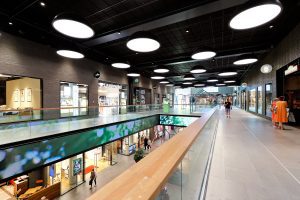This audio was created using Microsoft Azure Speech Services
As I’ve moved around the world discussing a range of projects with a wide cross section of city leaders, one thing seems very clear to me – for Smart Cities to move from an aspiration to a reality, new models of cooperation and engagement will make a tangible difference. According to a UN report, 70% of the world’s population is expected to be living in cities by 2050: There will be a significant dependence upon Smart technologies if municipalities are going to be able to cope and thrive under the weight of large population increases.
Collaboration, or open innovation, requires the sharing of ideas and data inside and outside of your day-to-day ecosystem. However, this is neither normal nor natural behaviour for many people and organisations. Business in particular is typically secretive – keeping information proprietary or confidential as it very often has commercial implications. Indeed, the rate of change in technology markets has demonstrated time and again how a first mover advantage can be highly profitable. Or how costly it can be to be late to market.
With collaborative innovation, information is shared along with risk and reward. Like anyone that’s worked in an enterprise environment, I appreciate the implication that potential commercial returns may be reduced if information is shared. However, when information is shared with organisations in completely new business areas, it may be that the opportunities are scaled and the rewards increased for all involved thanks to wider focus and investment.
New ways of looking at challenges and opportunities, along with providing a supportive framework for private/ public cooperation may prove key to unlocking innovation, R&D and ultimately new solutions that deliver a low carbon future.
There are examples of this type of working emerging, but as a generalisation they are relatively embryonic or certainly have yet to deliver transformational impacts. One such example is the Smart Chicago Collaborative, which is a small civic organisation aiming to improve the lives of local people through technology. Set at the heart of the city’s innovation scene, the collaborative approach has worked well to create an open and innovative model and that joins up public and private activities in the search for new solutions. Chicago’s success has already been cited as a possible model for other cities to follow and has been documented by the Data-Smart City Solutions project run by the Harvard Kennedy School. Schneider Electric is involved in projects like this too and an example is Wise City in Hong Kong, where we’ve shared insights and expertise to build local knowledge for collaboration in developing new Smart projects.
Innovation and collaboration in Smart Cities is also an opportunity to work across borders and to share knowledge and information between countries for mutual gain. Pundits are already discussing this potential with respect to old and new economies, and China is featuring prominently in a number of these discussions as it seeks to more efficiently manage some of the fastest growing cities on Earth. Barcelona is also another example of a city that has been making great strides in this regards. We’ve been an active supporter of their efforts not least by assisting in the creation of a centre of excellence for Smart Cites.
Corporations including Schneider Electric are already sharing the experience and knowledge being accumulated as they go to work on many different Smart City Projects across a range of geographies. A great deal of my personal time is spent meeting with cities around the world, sharing just such credentials. This has increased my belief in the importance of bringing collaboration and openness to this field as we all stand to benefit from sharing knowledge.
Academics too, like the aforementioned Harvard Kennedy School and the Brookings Institute’s Bruce Katz, are not only talking about collaboration in smart cities, they’re expanding the discussion to incorporate thinking from academics and educational establishments to this debate. Supra-national bodies like the EU are also looking to play a part, as initiatives like Open Cities ably demonstrates. Within the EU, I’ve also been personally involved with Schneider Electric’s contribution to a programme of work to bring industry, academia and cities together to collaborate and agree specifications for Smart Cities and work like this, we believe, provide collaborations that accelerate Smart City programmes and their resultant benefits to many cities across Europe.
This is an exciting time and I’m delighted to be a part of this transformational process. My colleagues at Schneider Electric are already delivering projects, sharing expertise and contributing tangibly to a future that will make our urban environment more sustainable, more energy efficient and a better place to live in. It’s a great motivation to get up in the morning!
For more information on Schneider Electric’s Smart Cities solutions, visit our website.




Conversation
Sanjay Matthews
10 years ago
We have published a latest report on “Global Smart Cities Market “.
Please go through the link – https://industryarc.com/Report/1289/smart-cities-market-analysis.html
Ramon Sole
10 years ago
Another example of collaboration between public administration and private sector on building a open sensor platform for smart cities:
https://sentilo.io